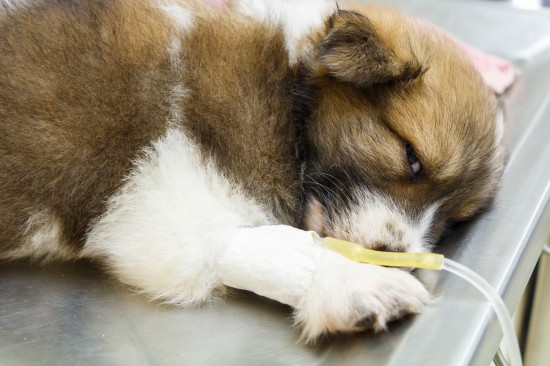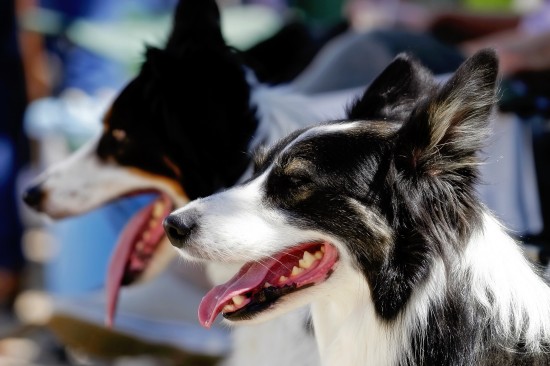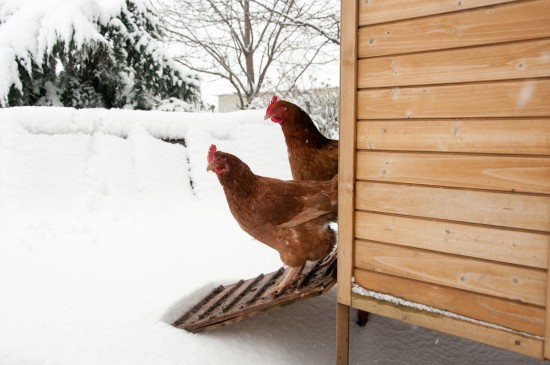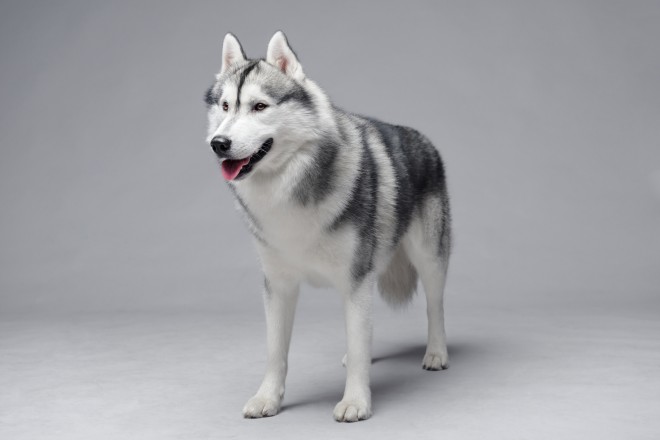

We all love our pets and they are a constant source of amusement and companionship to us. Having a dog around is a great because they give us a good excuse to keep fitter and healthier because we take them out for regular walks. In fact, having a dog in the house is great in many ways, they even help protect our valuable property.
Making sure our 'best friend' stays healthy isn't hard, it is mainly common sense things that we automatically do that helps a dog stay in tip-top condition. Feeding them the correct type of food as well as the right amount of food to suit their size, making sure they get plenty of exercise and that they always have access to fresh clean water all goes a long way to ensuring our dogs are happy, content and in good condition.
But there are certain things to look out for which could be an indication that all is not right with your faithful friend and companion. So it is always worth giving them a check over from time to time, and this is especially true as they get older.
It is really important to make sure your dog is regularly wormed. Dogs can get all sorts of nasty internal parasites that will damage their guts and cause all sorts of other health problems. Tapeworms, hookworms, roundworms and whipworms are the types of worms that a dog can pick up.
Although most worm infestations in dogs can be successfully treated very simply, hookworms in puppies can prove to be fatal – so this is something that needs to be kept in mind when there are puppies around.
The signs to look out for are the following:
Should you be worried then the best thing to do is take your four legged friend to see your vet who will be able to confirm what sort of worms are causing the problems and then prescribe the correct worm medication. Never buy cheap dog wormers because there are some out there which have proved to be very dangerous and can actually do more harm than good.
Fleas are extremely nasty creatures that can multiply at an amazing rate – one single flea can turn into one thousand in around three weeks. If you find your dog has fleas, then you need to treat them immediately but not with just any cheap flea powders or other treatments that are on the market. Make sure you get a dog flea product that is a well known and well respected brand because there are some products out there which could end up poisoning not only the fleas but your dog too!
One thing to remember is that if your dog has fleas then the chances are they will have tapeworms too because fleas carry them. If you don't treat your dog immediately, not only will they remain really uncomfortable but it could lead to them becoming anaemic because of the loss of blood. You may also need to treat any dog beds and your home too to make sure your dog doesn't get a re-infestation.
Hot spots are areas on a dog where they have lost their fur and the areas have become bare, red and inflamed. Very often dogs who have acute moist dermatitis have noticeable 'hot spots' because of the bacterial skin infection. However, these can be caused by anything that irritates a dogs' skin which then makes them start scratching or even chewing which they do until the area becomes extremely inflamed and sore.
Dogs with 'hot spots' need to go to the vet to help find out what is causing the problem. It could be fleas or it could be something else and the vet will know whether to treat the dog with antibiotics, steroids or NSAIDS which re anti-inflammatory drugs. In some instances a topical medicated cream will help treat them up.
Sometimes dogs will eat grass and then sick this up, and most of the time this is nothing to worry about. Remember, dogs are not true carnivores, unlike cats, but they not your normal omnivores either. However, dogs like to eat vegetables as well as meat – they enjoy eating vegetables and it does them good to eat greens!
If you notice your dog is vomiting a little too much, then it could be there is an underlying problem that needs veterinary attention. It might be that your dog is suffering from worms or an infection as a result of intestinal parasites. It could be due to heatstroke, kidney failure, pancreatitis or even poisoning - so you need to get your pooch to the vet as soon as you can so the correct treatment is administered.
If you notice your dog heaving and drooling which is caused by the nausea and there is blood present in the vomit, there could be a serious problem. Very often dogs become lethargic and they cannot keep any liquids down which then means they become dehydrated. This can be very serious and lead to kidney failure which is fatal.
Just as with vomiting, there could be many underlying causes for a dog who suddenly develops diarrhea. Believe it or not if a dog is stressed this can bring on diarrhea. Infections too can be the cause and this includes parvo virus. If a dog has worms this can also cause diarrhea but then so can certain foods.
If you leave things too long, you run the risk of the dog becoming dehydrated, which is not good at all. If your dog has diarrhea, you have to make sure they have access to lots of fresh water and that they are drinking. If the problem doesn't improve, then you need to get your dog to the vet to find out what is causing the problem and to get the right treatment for your four legged friend.
It is not only the older dog that can suffer from arthritis which is a degenerative condition that can affect one or many joints. Larger dogs tend to suffer from the problem more than smaller ones simply because of the extra weight and strain that's put on their joints and ligaments.
Obviously, cold and damp weather makes the condition worse, so it is important to ensure your dog is warm and comfortable – the condition, just like for humans, can make the dog's life pretty uncomfortable and miserable.
Your vet would be able to take some X-rays to confirm where the arthritis is in the joints and what the best course of action and treatment would be best to make your dog's life a lot more pleasant.
 10 Tips To Help Make Your Christmas Tree Cat Proof
10 Tips To Help M
10 Tips To Help Make Your Christmas Tree Cat Proof
10 Tips To Help M
 Canine Coronavirus (ccv) - Coronavirus In Dogs
Canine Coronaviru
Canine Coronavirus (ccv) - Coronavirus In Dogs
Canine Coronaviru
 Heatstroke And Dogs - Keeping Your Dog Safe From Overheating In The Summer
Heatstroke And Do
Heatstroke And Dogs - Keeping Your Dog Safe From Overheating In The Summer
Heatstroke And Do
 Dealing With Frostbite Or Frozen Comb In Chickens
Dealing With Fros
Dealing With Frostbite Or Frozen Comb In Chickens
Dealing With Fros
 What Factors Contribute To Hereditary Health Problems In Dogs?
What Factors Cont
What Factors Contribute To Hereditary Health Problems In Dogs?
What Factors Cont
Copyright © 2005-2016 Pet Information All Rights Reserved
Contact us: www162date@outlook.com